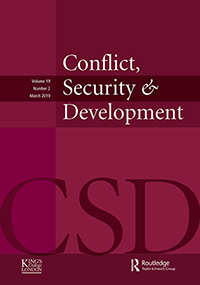Resource information
Much has been written on land deals, their impact and challenges of contestation in the Global South. Multiple studies show that communities are high-spirited as long as they oppose the actual conversion of their land. My findings illustrate, however, how companies, local authorities, communities, civil society and the government mitigate conflicts, re-shape resource governance, and negotiate terms of development in operating plantations and local-global dynamics thereof. Drawing on extended ethnographic research in Cambodia and Sierra Leone between 2016 and 2018, I examine two plantation assemblages linked in time and across space. Although run by the same company, the different set-ups and sociopolitical contexts have a bearing on community resistance. Based on Nail’s assemblage framework, I start out by defining the territorial assemblages prior to the companies’ arrival. Next, I illustrate the emerging plantation assemblages’ statist and capitalist features with emphasis on the repercussions of monitoring and patronisation dynamics on the communities’ dependency and leverage. Third, I highlight the resulting differences in the communities’ struggles and the potential of emerging alliances, before concluding and reflecting on policy implications.

